In the actual transportation process of oil and natural gas, due to the particularity of the transportation medium, the steel pipelines to be transported will be corroded, which is mainly because oil and natural gas themselves have certain corrosion, long-term corrosion will lead to safety accidents such as perforation and leakage in the transportation pipeline, thus causing great difficulties in the actual transportation of oil and gas. Therefore, in the actual development, relevant enterprises should actively take measures to improve the anti-corrosion performance of petroleum and natural gas pipelines and improve the anti-corrosion performance and quality of steel pipelines, thus improving the safety of petroleum and natural gas transportation. This paper mainly discusses the causes and hazards of corrosion on petroleum natural gas pipelines, as well as the related anti-corrosion technologies in China at present, and puts forward relevant measures to improve the anti-corrosion of pipelines, in order to promote the safety and efficiency of oil and gas transportation.
The corrosion of oil and gas pipelines has polluted the natural environment to a great extent, which is also a significant problem in the current social development and has affected the stable development of our country to some extent, this also shows that effective measures must be taken in the future development to improve the anti-corrosion performance of oil and gas pipelines and promote better development and growth of the oil industry.
Related technologies for anti-corrosion protection of petroleum natural gas pipelines
At present, China’s petroleum natural gas pipelines are mostly buried underground in the process of design and laying. From a global perspective, anti-corrosion technology for buried oil and gas transportation pipelines is one of the most commonly used technologies in the world. There are also many types of anti-corrosion coatings, such as polyethylene adhesive tape, fused epoxy powder, petroleum asphalt, extruded polyethylene, coal tar porcelain paint and epoxy coal pitch.
POLYETHYLENE ADHESIVE TAPE TECHNOLOGY FOR PETROLEUM NATURAL GAS PIPELINE
In terms of the global economic development at the present stage, the polyethylene coating is a relatively advanced anti-corrosion material all over the world. This technology is to apply extruded polyethylene on the outside of the pipe and then apply copolymer adhesive in the middle, the bottom layer is coated with fused epoxy powder. The reason why this technology can protect petroleum natural gas pipelines better is mainly because these two coatings can make up for each other’s defects, thus improving the anti-corrosion performance of pipelines, it is one of the technologies with good anti-corrosion performance of petroleum and natural gas at present. However, this anti-corrosion technology also has some defects, that is, the anti-corrosion coating has a poor resistance to soil corrosion, and the cathode shielding problem easily occurs in high temperature, the occurrence of this problem is mainly due to the high resistance and poor bonding force of petroleum and natural gas transportation pipelines.
PETROLEUM NATURAL GAS PIPELINE FUSION EPOXY POWDER TECHNOLOGY
Among many anticorrosive coatings for petroleum and natural gas pipelines, the fused epoxy powder coating has the best bonding force, and it has strong environmental corrosion resistance. In addition, the paint is also very strong in machinery, which can ensure the normal operation of petroleum and natural gas pipelines when they are subject to strong mechanical impact, and can better guarantee the transportation safety of petroleum and natural gas. However, it has very obvious disadvantages: if the oil natural gas pipeline encounters a rather sharp impact from objects during transportation, it will be greatly affected, moreover, the corresponding coating objects are also relatively thin, so in cities and regions such as stones, this coating technology is not suitable for use. Moreover, the coating has a very poor water resistance, and it is very prone to problems such as bubbles in a humid environment, which leads to corrosion of oil and natural gas pipelines.
TECHNOLOGY OF PETROLEUM ASPHALT COATING FOR NATURAL GAS PIPELINE
Petroleum asphalt has been used for the longest time in many petroleum natural gas pipeline coatings in our country. It is the oldest coating with low cost and very convenient operation. However, with the continuous development of economy, people’s demand for natural gas pipeline transportation of petroleum is getting higher and higher. In the actual development, people found that this coating has some disadvantages: it is very easy to age, in the coating process, it is very easy to absorb water and cannot resist high temperature environment, and the ability of antibacterial and pressure resistance is poor. If the root of the plant damages the pipeline, the coating cannot better protect the oil and gas transportation pipelines. To some extent, this indicates that this coating technology is best used in the environment of microorganisms or rootless organisms, and the environment in this area should be guaranteed to be more moderate and the temperature should not be higher.
PETROLEUM NATURAL GAS PIPE EXTRUSION POLYETHYLENE TECHNOLOGY
Extruded polyethylene has strong water resistance, mechanical properties and high resistance in the actual use process. But it also has some shortcomings: the actual corrosion resistance is unstable, the resistance to soil erosion is poor, and the adhesion is not very high. Therefore, this anti-corrosion coating technology is only suitable for pipelines with smaller diameter.
COAL TAR PORCELAIN PAINT TECHNOLOGY FOR PETROLEUM NATURAL GAS PIPELINE
The usage of this anti-corrosion coating is applied in the early stage of project, which can make up for the defects of the petroleum asphalt coating technology, and it can resist the erosion of pipelines by bacteria in the actual transport process of pipelines, and the mechanical properties are also very high. Pipelines will be eroded by chemicals and alkaline substances during transportation, but this coating technology can better resist the corrosion of these substances. At the same time, the aging resistance and water absorption of coal tar porcelain paint are also better. The main disadvantage of this technology is that it cannot resist the erosion of soil and high temperature on pipelines, and the cathodic protection performance needs to be improved.
EPOXY COAL PITCH COATING FOR PETROLEUM NATURAL GAS PIPELINE
As far as the current development of our country is concerned, there are two main components of this coating technology, namely coal tar and epoxy resin, both of which have strong anti-corrosion properties. Therefore, in the actual use process, this coating technology has better waterproof, anti-microbial corrosion, anti-soil corrosion and strong bonding force, to a great extent, it can ensure that oil and natural gas transportation pipelines are not corroded. However, in the process of construction, this coating takes a long time to cure, and in the process of curing, the relevant staff must ensure that the pipeline is clean and cannot be polluted by any substance, this is difficult for the current development. This also determines that this coating technology is more suitable for the repair of anti-corrosion layers and some irregular pipelines.
Anti-corrosion protection measures for petroleum natural gas pipelines
TECHNICAL MEASURES FOR COATING PROTECTION OF PETROLEUM NATURAL GAS PIPELINES
Strengthening the design and construction of buried steel pipelines to reduce the probability of third-party damage, adding warning signs to the location of buried oil and gas pipeline to prevent construction units from ditching and causing damage to the pipeline, causing huge economic losses.
In the actual development, relevant construction units can choose to use coal tar porcelain paint to coat Petroleum Natural Gas Pipelines. This technology has very good electrical insulation and can resist the penetration of plant roots, so as to improve the corrosion resistance of metal pipes. In addition, in the actual use process, it only takes a short time to reach the curing effect, so as to ensure that the cathode will not peel off, it plays an important role in cathodic protection, thus improving the corrosion resistance of pipelines. When the construction unit chooses the appropriate coating technology for use, it should use it strictly in accordance with the corresponding regulations and complete the coating construction operation with quality and quantity, ensure the external insulation of pipelines in actual use reaches the corresponding standard, and prevent different types of media from corroding the pipelines. In the development, relevant construction units must strengthen the design, monitoring and construction of buried pipelines, so as to ensure that they are not affected by third parties in the construction process. In the construction process, the construction unit should mark and warn the location where oil and gas transportation pipelines are buried to prevent other building units from damaging the construction and protection of pipelines, which can not only reduce the construction cost of pipelines, it can also improve the safety of pipeline transportation.
TECHNICAL MEASURES FOR CATHODIC PROTECTION OF PETROLEUM NATURAL GAS PIPELINES
In the actual construction process of petroleum and natural gas pipelines, in order to reduce the degree of corrosion of transportation pipelines, the pipelines and cathode are protected from corrosion. The construction unit can take cathodic protection measures, and cathodic protection measures are mainly divided into two kinds, namely: current cathodic protection measures. And the cathodic protection measures of sacrificial anode when the cathodic protection is carried out for petroleum and natural gas transportation pipelines, the construction unit should choose appropriate cathodic protection measures according to the actual development situation, the protection of steel pipelines after the long-term development of our country and the on-site investigation of oil and gas transportation pipelines, cathodic protection is the most effective anti-corrosion measure for steel pipelines in our country, therefore, most construction units in our country now adopt cathodic protection measures to protect steel pipelines. This technology has been widely used in construction units of oil and gas transportation pipelines in our country. Among them, graphite is the anode material that construction units often choose, and this material is also the best one at this stage, which can effectively protect oil and gas pipelines from various aspects of corrosion during transportation, it greatly reduces the probability of steel pipeline safety accidents, reduces the number of casualties and property losses, so as to better promote the development and progress of society and the country, provide more guarantees for people’s lives.
PROTECTIVE MEASURES FOR CORROSION INHIBITOR OF PETROLEUM NATURAL GAS PIPELINE
Buffer as a chemical agent, can effectively reduce the corrosion of steel pipelines, the buffer is added according to the relevant requirements to transport medium, can effectively reduce the corrosion of pipelines. In addition, it can also be used together with the active agent of the pipe surface to reduce the corrosion of the metal pipe surface and prolong the service life of the metal pipe, improve the transportation efficiency and quality of oil and gas pipelines. Through the research of relevant personnel, after using the high-quality buffer agent, it will be added into the medium to be transported, and will not affect and hurt the medium of transportation, in this way, it can not only prevent steel pipelines from being corroded, but also guarantee the quality of the transportation medium and improve the safety of steel pipelines.
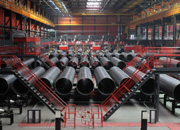 Threeway Steel is known as a professional supplier engaged in manufacturing and distributing a wide range of steel pipe, and our headquarter located the central part of China – Hunan and six associated factories throughout China.
Threeway Steel is known as a professional supplier engaged in manufacturing and distributing a wide range of steel pipe, and our headquarter located the central part of China – Hunan and six associated factories throughout China.
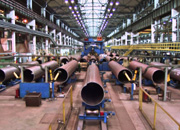 Threeway Steel is known as a professional supplier engaged in designing, manufacturing and distribution of a wide range of steel products with the headquarter located the central part of China – Hunan and six associated factories throughout China.
Threeway Steel is known as a professional supplier engaged in designing, manufacturing and distribution of a wide range of steel products with the headquarter located the central part of China – Hunan and six associated factories throughout China.
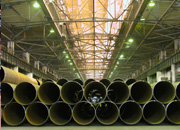 Threeway Steel is known as a professional supplier engaged in designing, manufacturing and distribution of a wide range of steel products with the headquarter located the central part of China – Hunan and six associated factories throughout China.
Threeway Steel is known as a professional supplier engaged in designing, manufacturing and distribution of a wide range of steel products with the headquarter located the central part of China – Hunan and six associated factories throughout China.
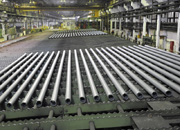 Threeway Steel is known as a professional supplier engaged in designing, manufacturing and distribution of a wide range of steel products with the headquarter located the central part of China – Hunan and six associated factories throughout China.
Threeway Steel is known as a professional supplier engaged in designing, manufacturing and distribution of a wide range of steel products with the headquarter located the central part of China – Hunan and six associated factories throughout China.
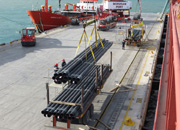 Threeway Steel is known as a professional supplier engaged in designing, manufacturing and distribution of a wide range of steel products with the headquarter located the central part of China – Hunan and six associated factories throughout China.
Threeway Steel is known as a professional supplier engaged in designing, manufacturing and distribution of a wide range of steel products with the headquarter located the central part of China – Hunan and six associated factories throughout China.

